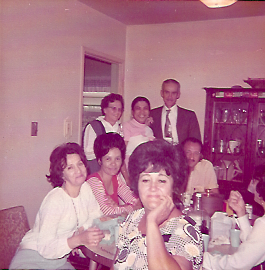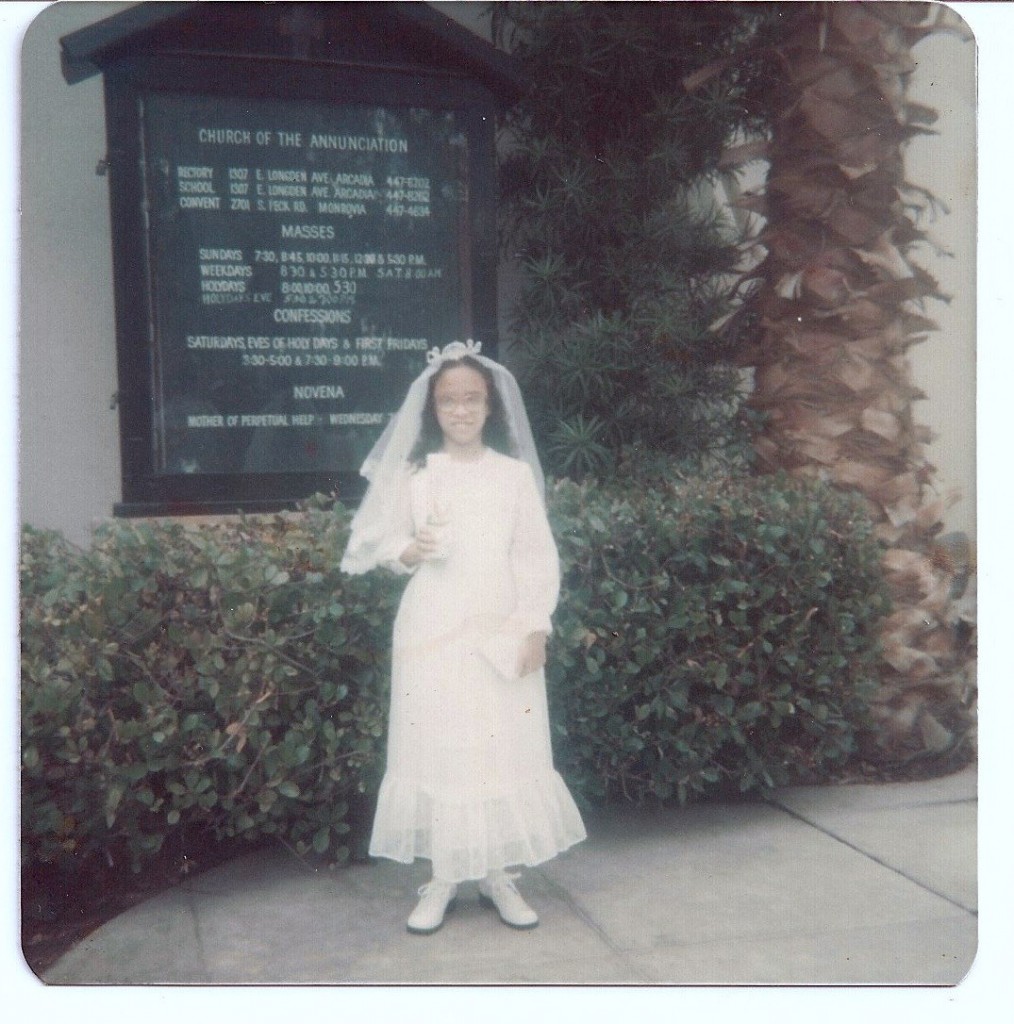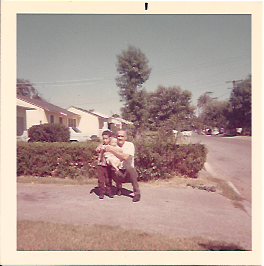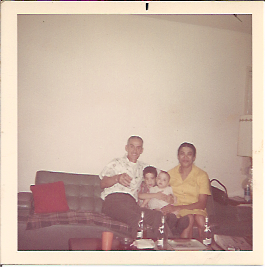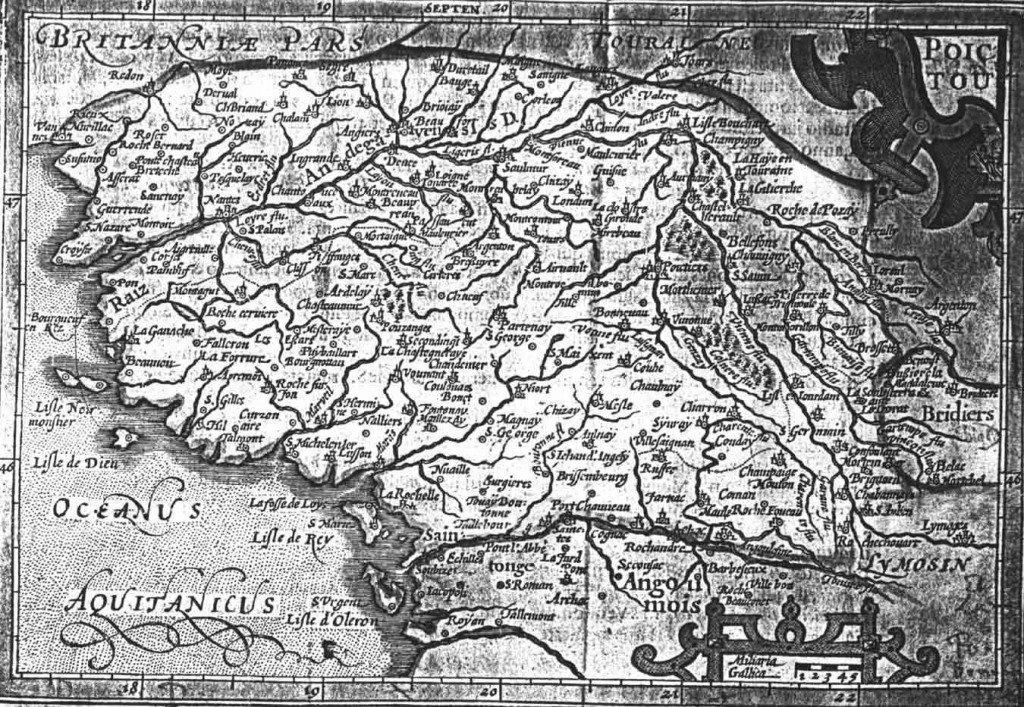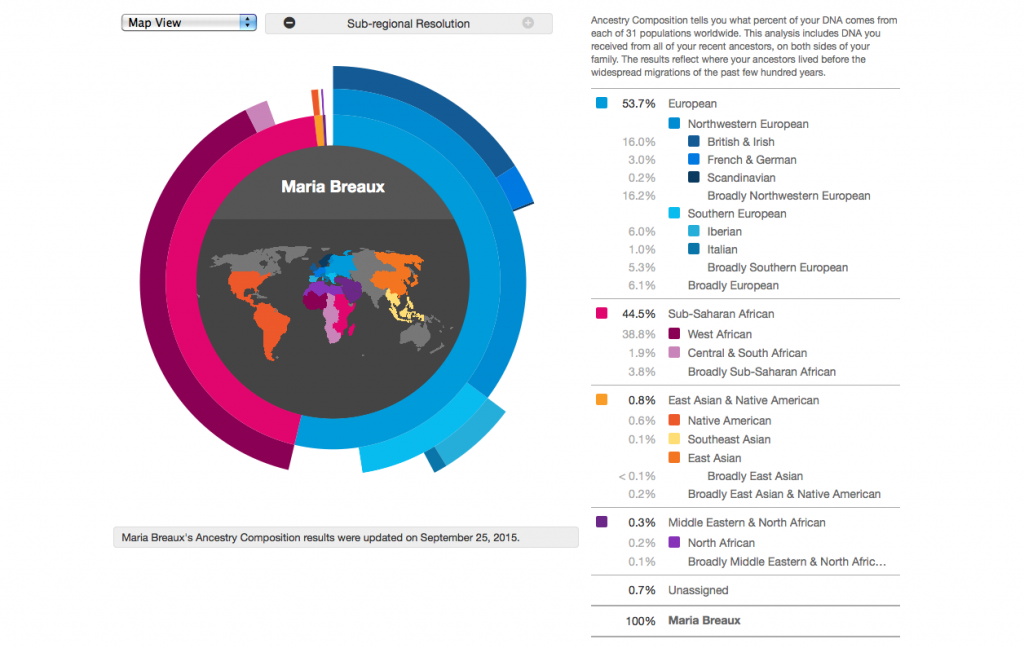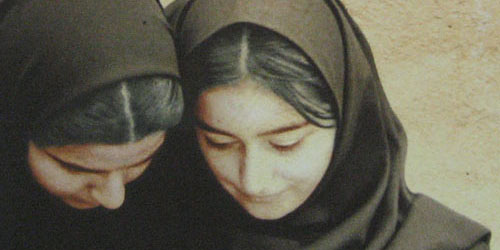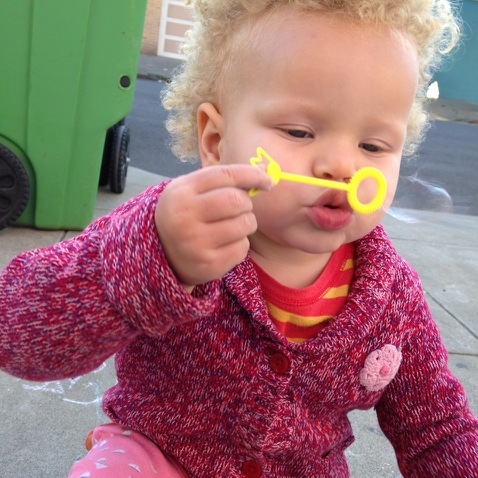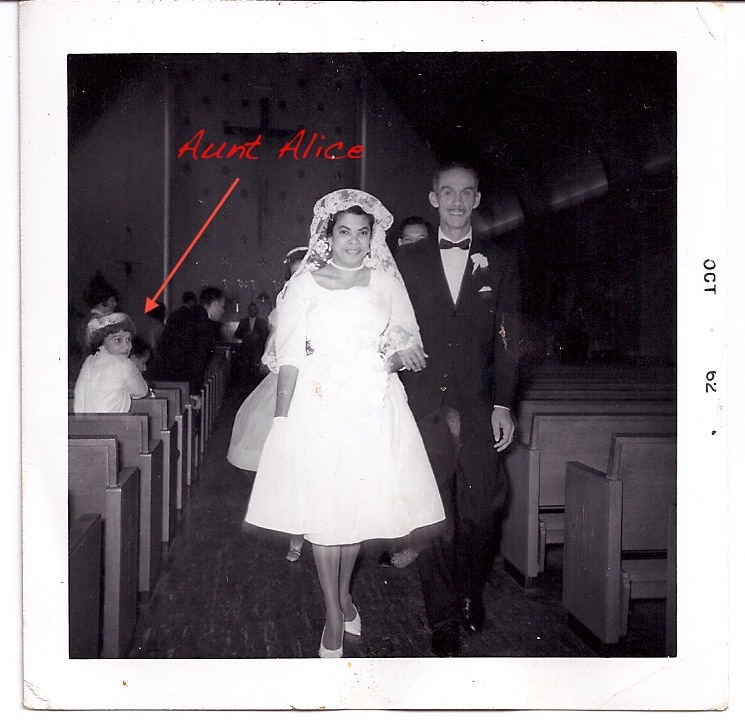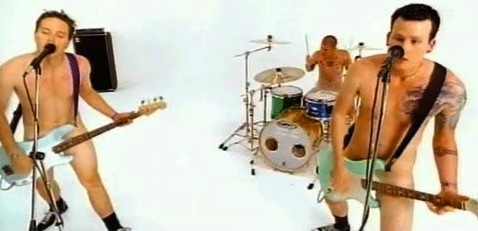(15-minute read)
No, not the Clampetts, although they had a great nine-season run. I’m talking about J.D. Vance’s Hillbilly Elegy, a work that continues to hold a place on the New York Times bestseller list since its publication in 2016.
In his memoir, Vance’s family and history serve as a microcosm of the Appalachian hillbilly lifestyle, poverty-line warts and all. Among the inconsistencies, oversimplifications, and spotty logic, one thing stood out to me: The people Vance describes sound a lot like my family and childhood community. I didn’t grow up in Breathitt County, Kentucky, or Middletown, Ohio, but Duarte, California, a suburb of Los Angeles County.
All in the Family
To clarify—Vance’s tales sound a lot like my family minus the guns. Well, kinda. Thankfully, for a whole lot of reasons, we never had guns in our house. But, a lot of people I knew did, including my mom’s good friend Lorna Mae, who shot her husband E.J. with a shotgun. (He miraculously lived to tell about it.)
A contemporary trip to the Inland Empire—where some of my family and many of the people I grew up with now live—is more likely than not to land you in a shopping center with stores featuring one or more gun magazine racks. Shooting ranges abound—as one local website proclaims, “Nothing is more quintessentially Inland Empire than a day at the shooting range.” Any time I get a Facebook friend suggestion with a picture of a camouflage-clad hunter, kneeling and smiling with a rifle and a dead animal, it’s always of someone I grew up with.
Clinging to Guns and Religion
Like Vance’s childhood world, religion was also pervasive where I grew up, as it is now in the areas where Duarteans relocated to as adults. Kids are confused at best, mortified at worst when they see a schoolteacher in public. I was both when I saw my fifth-grade teacher, Mr. Sheehan, signing an anti-abortion petition at a table set up outside my family’s Catholic church. One of my high school’s graduating classes picketed after it was announced that prayer would no longer be part of the baccalaureate ceremony. The school put it back in.
Then there’s the military. Many men and women from my hometown honorably enlisted and served. For many of my cousins and all of my American uncles, it was a natural step on the way to adulthood. From WWII to Vietnam to Desert Storm and beyond, the military runs in the blood of many working-class Southern Californians.
A Mixed-Race, Suburban Bumpkin
Although far removed from “the holler,” my life in Duarte and Vance’s childhood anecdotes share further similarities, some oddly parallel.
- Vance’s church warned of Satanic rock lyrics. My father took my little brother and me to a church meeting once, where a white guy with an Afro played Stairway to Heaven backwards. We were terrified.
- Like Vance, I grew fearful when my drunken parent (my father) threatened to crash the car—with my mom, my older brother, and me in it.
- At a young age, I had one pair of shoes, but like Vance, I had access to books. My father beamed whenever the Scholastic Book Club order arrived at school. He was there to pay cash on delivery.
- Like Vance’s beloved “Mamaw,” so many key people “saved” me—my Aunt Blos and Aunt Sister Maggie from Jamaica; my Aunt Cecelia who lived in La Puente, California; plus nuns, priests, teachers, and track coaches—providing valuable lessons that combined equal measures of hard knocks, kindness, and discipline.
- When I graduated from Stanford University and got my first salaried position (as an editorial assistant), I paid for my mother’s at-home nursing care, just as Vance covered his mother’s hotel room during her drug rehabilitation.
From fast food to ubiquitous expletives to police calls for domestic disputes, the people I grew up with shared many habits, values, and morals with Vance’s home community. At their core lay hard work, family values, love of country, and a belief in the American Dream.
How does all of this translate to socioeconomics? More importantly, how can two seemingly disparate cultures such as the ones that Vance and I represent bridge divides and identify common ground? Why aren’t we all raising shared hell over our current place in the socioeconomic cosmos?
What Doesn’t Kill Us….
Even though Vance now occupies space in the 1% and I’m closer to the 10%, being raised in an America-loving, Bible-worshipping, family-honoring, yet economically marginal environment can lead to certain behaviors. Again, Vance and I share a few things in common here, especially as economic minorities who went on to achieve—in our own ways and to different degrees—odds-defying levels of success. “Even at my best, I’m a delayed explosion,” he writes. “I can be defused, but only with skill and precision.” Thankfully, Vance has his wife Usha, whom he met in law school (on a financial-need-based scholarship) to keep him in line. She’s often there to remind him that it’s better to walk away from a potential altercation than to invite unnecessary trouble.
Where I grew up, a putdown—particularly a racial epithet—could land you in the hospital or worse. You just didn’t “talk about my mama.” Despite my own, current mild manners, I used to have a tendency to throw things—never at people, mind you—an impulse I’ve only recently conquered. Things I’ve lobbed, chucked, or otherwise propelled include DVDs, potatoes, and my fist into a door. Like Vance, I’ve overcome a habit of simply walking out of a room when an argument isn’t going my way. My own wife, Sarah, helps me be my better self in these moments.
Vance and I are both survivors. We share a somewhat reciprocal history. Which is to say—seems like there’s something more to our stories than geography.
The Story of (Poor) Us
While there are certainly many cultural and regional differences between large parts of Southern California and Vance’s Appalachia—notwithstanding pockets of the middle and upper middle class—there are enough similarities to make his story a universal elegy for the working and nonworking poor.
Why not connect Appalachia to a broader story of the dispossessed?
Of course, Vance is focused on the world he knew and knows best—that of poor, white America. My town—and my family—was mostly shades of Black and Brown, although it was also surprisingly diverse. Still, isn’t his past a larger narrative of America’s underprivileged? And wouldn’t the issues he raises be better served by viewing them through a universal lens?
Vance is a conservative, I’m a card-carrying progressive. How can people from such similar backgrounds develop such different political leanings?
I’ll get to that in a moment. But first….
About Those Inconsistencies
“Jackson, [Ohio,] like the Blanton men, is full of contradictions.”
– J.D. Vance
So is Vance’s book.
Vance insightfully points out the complexities and advantages of payday lending—instead of simply calling for its elimination—yet castigates the entire Democratic Party for programs that enable “welfare queens” and the purchase of T-bone steaks. Later, he laments how a young man, with whom he’s sharing a fast food meal, seems ashamed to ask, “almost in a whisper: ‘I wonder if I could get a few more French fries?’.” Where’s the talk of complexity here? How can it be pitiful to not ask for food, but also wrong to insist on steak? Is Vance suggesting that it’s okay and expected for people to ask for, in common right-wing parlance, “free stuff,” just so long as the government’s not involved?
It’s a contradiction to blame people for not getting their shit together, while at the same time pointing out what hillbillies don’t know—what it’s impossible for them to know—that would allow them to get ahead. Whether through social education or a “government program,” the fact remains that certain knowledge or access increases the chances of success.
Hillbilly Elegy is persuasive and well-researched at some points, simplistic and incomplete at others. He goes into great detail around a study conducted by the National Bureau of Economic Research that shows people who go to church are healthier, happier, and live longer than non-churchgoers. The actual study results reveal a focus not on the act of going to church, but “being in an area with more co-religionists” (i.e., having a stable community). It “does not investigate the mechanism through which religiosity creates these results.”
The study suggests four possibilities for its results:
- Religious attendance increases the number of social interactions in a way particular to religious settings.
- Religious institutions provide financial and emotional ‘insurance’ that help people mitigate their losses when setbacks occur.
- Attendance at religious schools may be an advantage.
- Religious faith may simply improve well-being directly by enabling the faithful to be “less stressed out by the problems of everyday life.”
Hillbilly Elegy doesn’t explore any of these deeper shades of meaning. In fact, studies have found similar results among such groups as the Japanese and soldiers with strong personal relationships. In other words, tight-knit communities.
While Vance clearly describes certain issues—for instance, ACEs, which he defines as “traumatic childhood events [whose] consequences reach far into adulthood”—he skimps on others. One such instance is the racism surrounding Obama’s presidency.
Vance explains why hillbillies don’t like Obama and why so many of them didn’t believe he was a US citizen:
“Many of my new friends blame racism for this perception of the president [being a foreign-born Muslim with ties to Islamic extremists]. But the president feels like an alien to many hillbillies for reasons that have nothing to do with skin color. Recall that not a single one of my high school classmates attended an Ivy League School. Barack Obama attended two of them and excelled at both. He is brilliant, wealthy, and speaks like a constitutional law professor—which, of course, he is. Nothing about him bears any resemblance to the people I admired growing up: His accent—clean, perfect, neutral—is foreign; his credentials are so impressive that they’re frightening; he made his life in Chicago, a dense metropolis; and he conducts himself with a confidence that comes from knowing that the modern American meritocracy was built for him. Of course, Obama overcame adversity in his own right—adversity familiar to many of us—but that was long before any of us knew him.”
Was Obama the first president to attend an Ivy League school? Did that pedigree stop hillbillies from voting for George H. W. Bush, or George W. Bush, or John F. Kennedy, the last Democratic president they elected since they voted for Truman in 1948? Have hillbillies never supported someone wealthy for president—for instance, someone who currently holds that position who has a net worth of $3.5 billion? Did their religious fanaticism not allow them to identify with Obama singing Amazing Grace at Senator Clementa Pinckney’s funeral? Was Mitt Romney more “down home” than Obama, who consistently slammed Romney’s “47%” comment—such as in their second presidential debate, where Obama defended the rights of people on Social Security “who’ve worked all their lives,” veterans “who’ve sacrificed for this country,” students, soldiers and “people working hard every day”? Isn’t this many of them? Did they, of the witty comeback, also miss Obama’s various disses, burns, and retorts—his many shades of throwing shade?
What president, however “alien,” has ever been mistaken for a terrorist?
When did Vance and hillbillies discover Obama’s story of adversity? How long could it possibly have taken to get to know him? This clearly didn’t happen during the 2004 Democratic National Convention, where Obama shared his story in the keynote address. It obviously wasn’t during four years of getting to know him as President of the United States. At what point did hillbillies “know” Obama?
We have to call it what it is. This is racism. Plus, Obama’s not the only one who benefitted from “the system.”
Social Capital Is in the Eye of the Beholder
Vance points out the system of meritocracy—which both he and I benefitted from. How does it work, and how can a poor Southern/Southern Californian hillbilly buy into it?
Vance offers detailed (and humorous) stories of navigating the social clubs and norms of the affluent. He spits out his first sip of sparkling water, not unlike my initial forays into fine dining. “What? It costs how much for this tiny ravioli and a leaf?”
Still, Vance and I developed different views on how social capital should be spent. For him, the network is fueled, aided, and abetted by a narrative of personal responsibility, of tapping into the network to mine its greatest advantages and stride headily into the “American Dream.”
This is the dichotomy of social conditioning, the bellwether not of personal responsibility, but personal growth—the confirmation that two people can have similar experiences and yet come to vastly different conclusions.
It’s another big difference between Vance and my landing points, at least by the time of his writing Hillbilly Elegy—he focuses on personal responsibility, I focus on compassion-infused government policy.
After all, I received a very contrasting payoff from my investment in social capital—the eventual understanding that certain barriers have to be brought down before people can even pretend to be their best selves. I believe not in using my experience to pen bossy missives or dictate what others should do, but to provide help and resources, partner with others seeking deeper solutions to social ills, and agitate for systemic change so that people can more freely decide for themselves.
Vance does allow for some level of government intervention and reform. He can’t be painted as inhumane or coldhearted. His calls for Appalachians to “do better” are sincere and come from a good place. He wants the best for his community.
Perhaps, then, a common starting point is precisely those economic realities that keep Appalachians, southern Californians, and so many other neglected communities locked in cycles of poverty, or that keep them several, gaping steps away from the middle class.
The Road to Success Is a Rope Bridge
I’ll say it again: certain knowledge and access increases the chances of success. Vance is well aware of this.
He discusses how he had people “helping me every step of the way.” He essentially became a recipient of what author and historian Ibram X. Kendi describes as social affirmative action—the unwritten rule that says if you’re white, you gain the “affirmative action” of nepotism and biased standardized tests.
As Betsy Radar writes in the Washington Post, “What does motivate most people is the belief that the future can be better and that we have a realistic opportunity to achieve it. But sometimes that takes help.” J.D. Vance maintains that this belief can’t be legislated. While I believe he’s ultimately right, his life is a perfect case study of Maslow’s Hierarchy of needs—if you don’t have access to a decent standard of living, a feeling of safety, and a sense of belonging, you can hardly start thinking about self-esteem and realizing a higher purpose.
Also as of the writing of his book, Vance seemed to be at the beginning of his journey toward self-actualization, of greater empathy. This state of compassion—in Vance, myself, and others—can lead precisely to the self-esteem and self-actualization that Vance so badly wants for his people. To describe the way to get there, I’ll use a football metaphor: the offensive line must defend and clear the way for the quarterback, so that he can make the most successful play and score a touchdown.
What’s in a Community?
Vance calls for his community to “wake the hell up” and help each other navigate the difficult terrain towards the American Dream. Despite not going into greater detail on the religious study he cites, he eventually (and correctly) identifies community as the essential ingredient missing from the hillbilly status quo. Where exactly does community stop and good government begin, though? Communities can band together and protest. They can refuse to participate or cooperate with corrupt governments.
But, how can community alone solve the systemic dilemmas of a massively corrupt and unjust prison system, government surveillance, legislation of bedrooms and bathrooms, and predatory banking and business practices and systems?
And, as Vance points out, even if industry and jobs were to increase in a certain location, people must be able to afford to live and purchase there. How can economic barriers be removed and greater job security ensured? The great problems of our day require even greater solutions. Good and effective government can help.
We Can Do This
We live in a period of great innovation. As engineers, scientists, and visionaries create new technologies, medicines, and ways of existing in a globalized world, those who adapt and expand their worldview will be best equipped to navigate change. “Thinking outside of the box” will no longer be just a business cliché, but a new model for broadening our perspectives and recognizing that our commonalities are greater than our differences.
Despite the similarities, as I’ve stated, Vance is conservative and I’m a progressive. I agree that at some point, people have to be the masters of their own destinies. But here’s the thing: We have to identify systemic barriers that make it literally impossible to be master of anything. Once these are brought down, then personal choices can lead the way. This requires a combination of empathy, strategic thinking, and good, accountable government. It calls for broad, bold ideas, and levels of complexity and nuance that don’t often appear in current, mainstream dialogue.
I think we can get there.
There are some significant economic differences between Appalachia and the Inland Empire: the latter has distribution centers for large employers such as Toyota, Whirlpool, and APL Logistics. It has booming industries including construction, retail, healthcare, and transportation; ports for imported cargo; and large police and military forces. The area is projected to be California’s fastest-growing region, but it’s also expected to maintain the lowest wages. Unemployment has been above the national average since 2007 and many rely on public assistance.
Appalachia and Inland Empire aren’t isolated places. They share characteristics with other areas of the U.S.—and the world—where a sense of pride, belonging, and community are increasingly at risk. Theirs is a global story, of opportunity on the one hand and struggle on the other. With some generous helpings of empathy, critical thinking, and government help, their economic destinies could very well trend positive.
Isn’t that a great thing to work towards?

